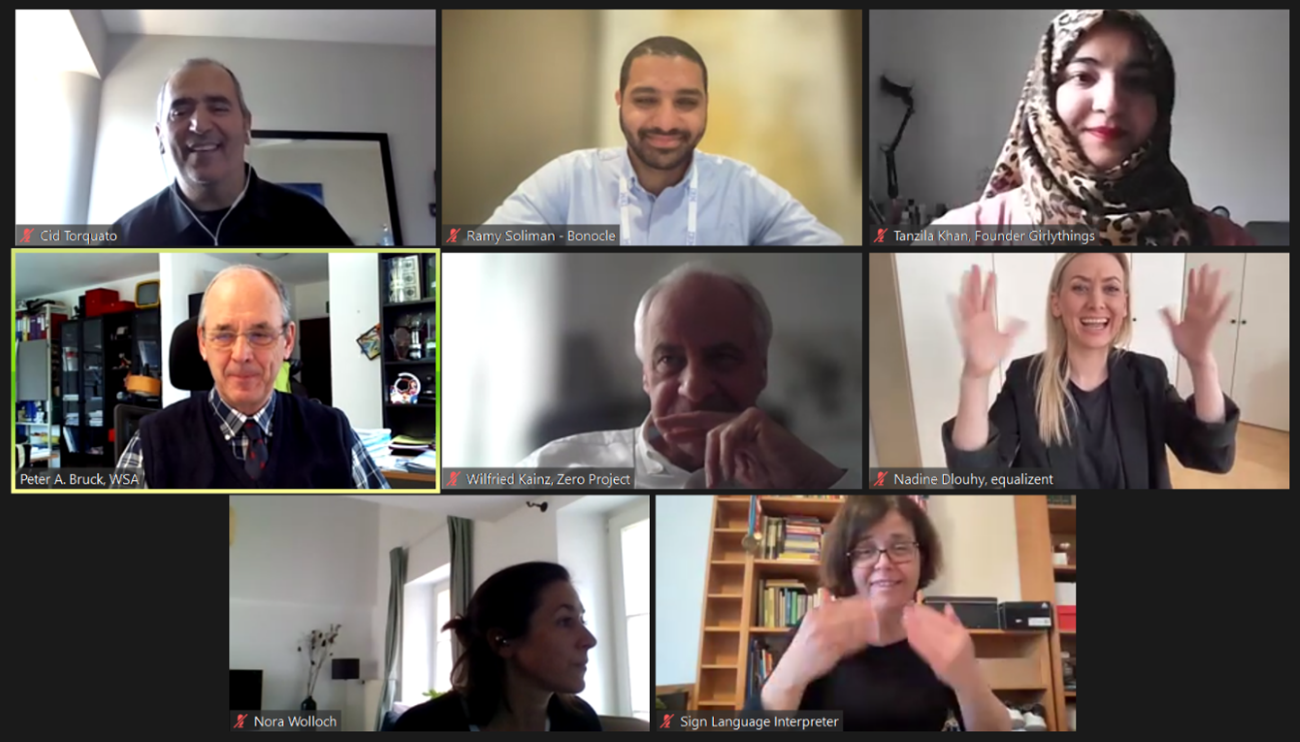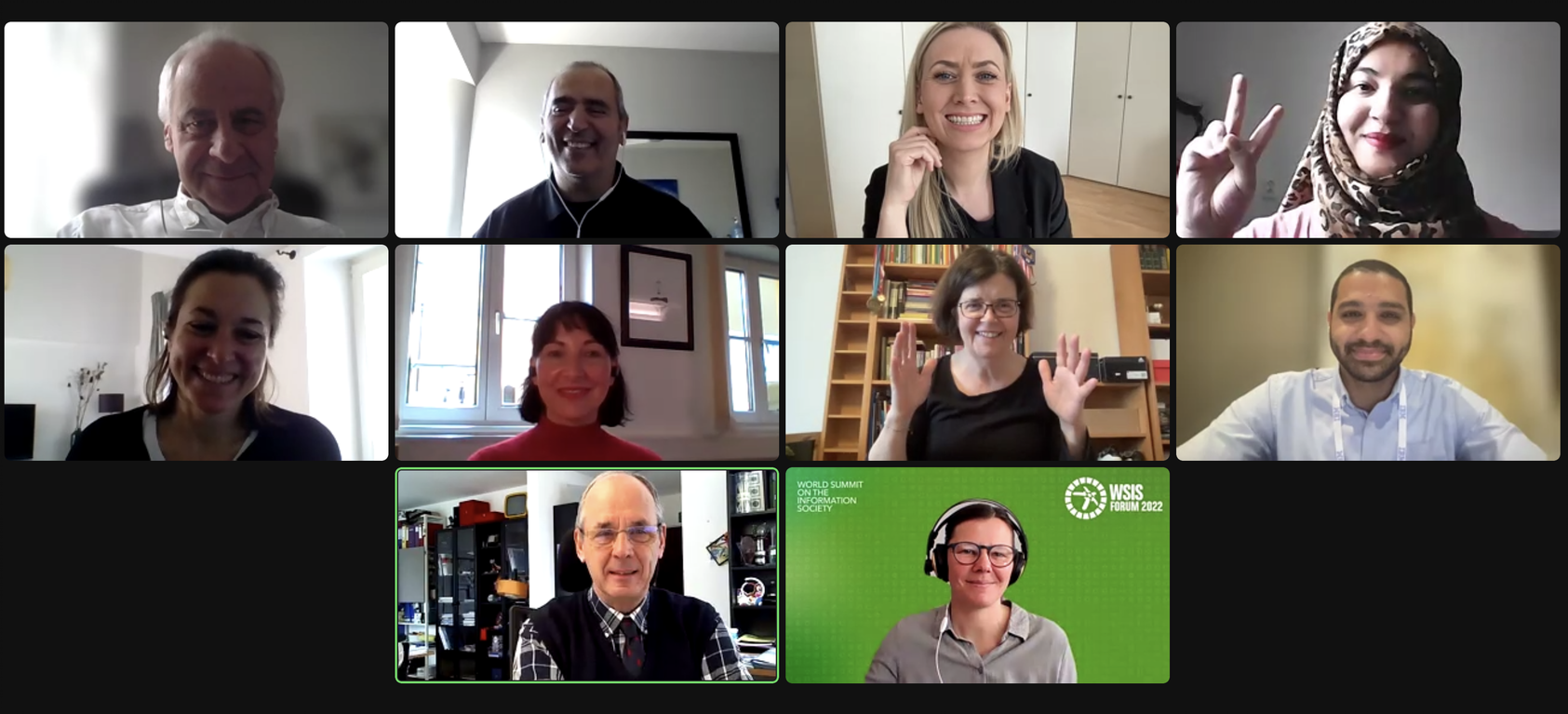Hack the Accessibility Gap
World Summit Awards
Session 144
Digital innovation for accessibility
Hack the Accessibility Gap
Across the globe around one billion people have a disability, and accessibility issues go far beyond the physical environment. We are living in the age of innovation – the way we interact with technology is evolving, especially in accessible and adaptive technology.
But there are still huge accessiblity gaps, in terms of content, accessibility and access.
Let´s Hack them Together and empower those who already take action.
Join the interactive and multi-stakeholder workshop “Hack the Accessibility Gap”, and meet digital innovators from all over the world, demonstrating how digital content and innovation can raise awareness, provide access, narrow accessibility gaps and feature taboo topics.
WSA is a global and multi-stakeholder community and initiative reaching 182 UN member states, contributing to the WSIS action lines and the achievement of the UN SDGs.
WSA has been initiated back in 2003 as Austrian contribution to the World Summit on Information Society in Geneva.
www.wsa-global.org

Prof. DDr. Peter A. Bruck studied law, economics, sociology and communications at the universities of Vienna, Iowa and McGill. He holds doctorates in law and communications and has taught at universities in Canada, the US and Western Europe plus Israel and Poland.
He has more than 25 years experience in research, university teaching and information technologies in Austria, Switzerland, Germany, Poland, Portugal, the US and Canada. Mr. Bruck received numerous awards and fellowships in Europe, the US and Canada and is listed in the Canadian and Austrian Who’s Who.
He founded, built and headed research institutes at three universities.
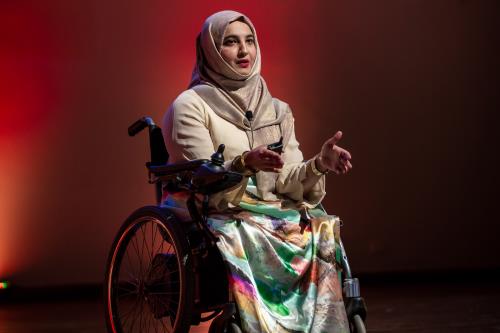
Tanzila Khan is a Pakistani disability rights activist, author, motivational speaker, and founder of Girly Things PK, a mobile application which delivers sanitary napkins to women with disabilities. Khan focuses on raising awareness of and access to reproductive health and education, especially for those with disabilities. She has written several books on the subject as well as given public speeches and seminars. She also works to de-stigmatise disabilities in Pakistan.
Khan has been wheelchair-bound since birth. In her youth, she was involved with theater, directing a production of The Addams Family Rendezvous. She later worked for global change-makers youth camp and a Youth Activism Summit, designing several workshops for the latter.
Khan has won several awards for her activism:
- Young Connector of the Future (Swedish Institute)
- Young Leader (Women Deliver)
- Khadija tul Kubra Award (national level recognition for advocacy)
- Youth Champion at Rise Up (Packard Foundation)
- Six-two 35 Under 35 Changemaker of 2018
- Received funding from AmplifyChange to establish a Training Institute in Lahore on SRHR and disabilities
- Invited to speak at TEDxKinnaird in 2012

Ramy Soliman is the co-founder and COO of Bonocle. The first ever braille entertainment platform for the blind.
He started Bonocle alongside some of his colleagues during university. Upon his graduation he chose to delve into carefully selected professional careers to improve his entrepreneurial and leadership skills. He started with project management and then moved into sales. Both of which he considered as learning experiences that will allow him to lead a team successfully at his startup. He continues to self-learn about startups, entrepreneurship, innovation, leadership and creativity and spread his knowledge to startups that seek his guidance. He has also gotten into the role of a creative director helping startups amongst his own and other entrepreneurs create experiences that their customers want.
His most recent created experiences are games for the blind and sighted that focus on tactile feedback and auditory signals.

Cid Torquato holds a degree in Law from the University of Sao Paulo, with specialization in International Affairs. He acted as Executive Director of the Brazilian Chamber of e-Commerce, which he co-founded in 2001. Prior to that, he worked for the Federal e-Government Committee of Brazil, at the Ministry of Planning, where managed the main public Internet portals. Previously, he held positions as Regional New Business Executive for Lowe & Partners, Latin America, and as Corporate Communications and Marketing Director for StarMedia Network. As a consultant, specialized in digital economy, worked with national and international institutions, such as SEBRAE, APEX, Softex, BIRD, IADB, Unctad, MERCOSUL and others, besides editing three books of articles, collaborating as source and columnist for various publications, presenting radio programs at Eldorado and CBN, as well as participating as speaker in events in Brazil and abroad.
Currently, Torquato works as Institutional Relations Coordinator at the Sao Paulo State Secretariat for the Rights of Persons with Disabilities, and blogs at www.torquato.org.
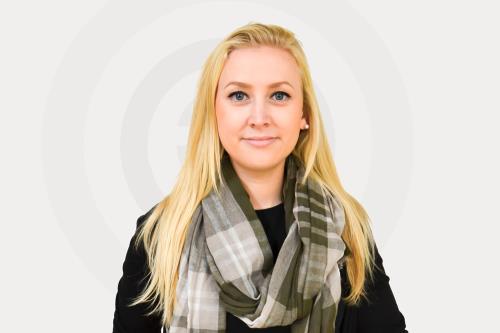
Nadine Dlouhy is a trainer at the training institute equalizent - Bildung. Consulting. Sign Language.
There she works mainly with deaf young people. She was part of the project team of SEX, baff!, which was jointly developed by deaf and hearing experts. Nadine Dlouhy is also a LOGO! trained deaf interpreter and translator.
In order to provide deaf youth with accessible information about sexuality, relationship, body and identity, the first sexuality education website was created with SEX, baff! Written texts and videos in ÖGS cover a wide range of topics, informing without shame or taboos and taking gender and diversity criteria into account. The content dispels myths and helps with (sexual) self-acceptance. The result is 220 ÖGS videos. Some of them are detailed explanatory videos. In addition, there is a detailed glossary on avatar basis.
The website is not only suitable for private use, but also for teaching. Because the videos, texts and graphics encourage discussion, so that every topic can be deepened.
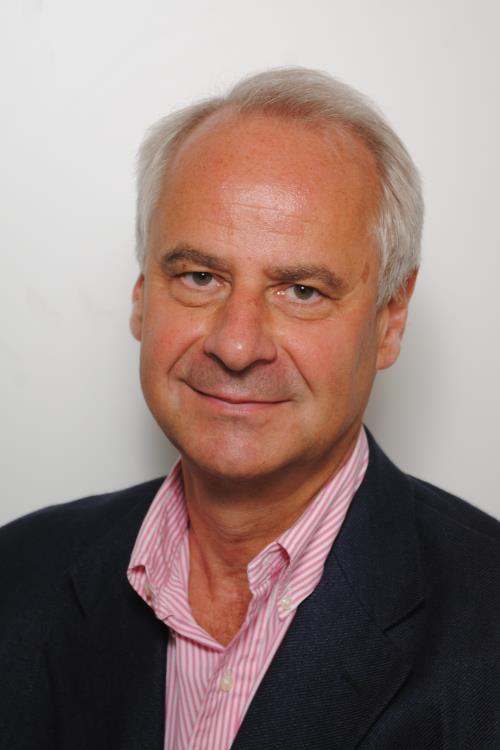
Wilfried Kainz is a graduate from the University of San Francisco (International Finance) and the Wirtschaftsuniversität Wien (University of Economic Affairs Vienna, Austria; Marketing, Advertising and Market Research). He works as an independent consultant and is doing research for the Zero Project on a part time basis. Recent publications for Zero Project were on Early Childhood Intervention and Accessibility and Employment of People with Disabilities.
Before the current activity as consultant, he held executive management positions in the food, med tech and IT industry.
-
 C4. Capacity building
C4. Capacity building
-
 C7. ICT applications: benefits in all aspects of life — E-government
C7. ICT applications: benefits in all aspects of life — E-government
-
 C7. ICT applications: benefits in all aspects of life — E-business
C7. ICT applications: benefits in all aspects of life — E-business
-
 C7. ICT applications: benefits in all aspects of life — E-learning
C7. ICT applications: benefits in all aspects of life — E-learning
-
 C7. ICT applications: benefits in all aspects of life — E-health
C7. ICT applications: benefits in all aspects of life — E-health
-
 C7. ICT applications: benefits in all aspects of life — E-employment
C7. ICT applications: benefits in all aspects of life — E-employment
-
 C7. ICT applications: benefits in all aspects of life — E-environment
C7. ICT applications: benefits in all aspects of life — E-environment
-
 C7. ICT applications: benefits in all aspects of life — E-agriculture
C7. ICT applications: benefits in all aspects of life — E-agriculture
-
 C7. ICT applications: benefits in all aspects of life — E-science
C7. ICT applications: benefits in all aspects of life — E-science
-
 C8. Cultural diversity and identity, linguistic diversity and local content
C8. Cultural diversity and identity, linguistic diversity and local content
-
 C10. Ethical dimensions of the Information Society
C10. Ethical dimensions of the Information Society
-
 C11. International and regional cooperation
C11. International and regional cooperation
-
 Goal 1: End poverty in all its forms everywhere
Goal 1: End poverty in all its forms everywhere
-
 Goal 3: Ensure healthy lives and promote well-being for all
Goal 3: Ensure healthy lives and promote well-being for all
-
 Goal 4: Ensure inclusive and equitable quality education and promote lifelong learning opportunities for all
Goal 4: Ensure inclusive and equitable quality education and promote lifelong learning opportunities for all
-
 Goal 5: Achieve gender equality and empower all women and girls
Goal 5: Achieve gender equality and empower all women and girls
-
 Goal 7: Ensure access to affordable, reliable, sustainable and modern energy for all
Goal 7: Ensure access to affordable, reliable, sustainable and modern energy for all
-
 Goal 8: Promote inclusive and sustainable economic growth, employment and decent work for all
Goal 8: Promote inclusive and sustainable economic growth, employment and decent work for all
-
 Goal 10: Reduce inequality within and among countries
Goal 10: Reduce inequality within and among countries
-
 Goal 13: Take urgent action to combat climate change and its impacts
Goal 13: Take urgent action to combat climate change and its impacts
-
 Goal 17: Revitalize the global partnership for sustainable development
Goal 17: Revitalize the global partnership for sustainable development
